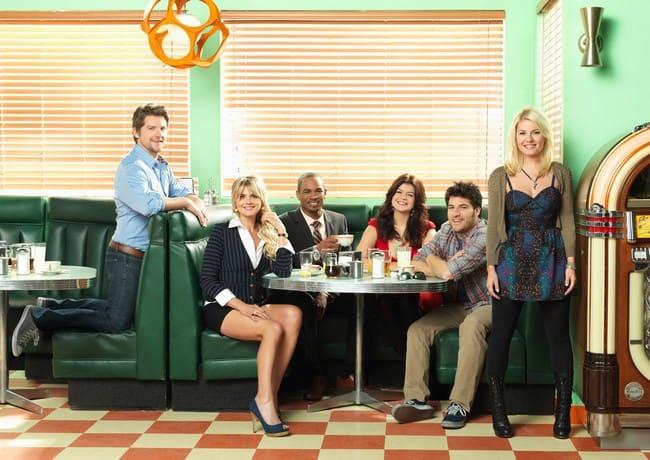We’ve all done something cringey when meeting our idols. Maybe you stuttered through a Taylor Swift meet-and-greet, or burst into tears shaking hands with your favorite actor. However, imagine your partner watching all of that unfold, then later mocking you in front of your friends.
Today’s Original Poster (OP) accompanied his girlfriend to a meet-and-greet with her K-pop idols, but ended up laughing at her for acting “too old” to fangirl over them. When the time rolled around for her to attend another concert, her response let him thinking she was being passive-aggressive.
More info: Reddit
When it comes to things people truly care about, like music, sports, or pop culture fandoms, respect often matters more than humor

Image credits: freepik / Freepik (not the actual photo)
The author’s girlfriend won a radio contest to meet K-pop group NCT and invited him as her plus one
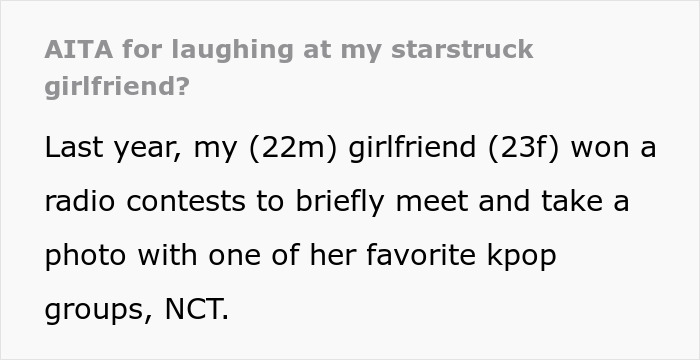
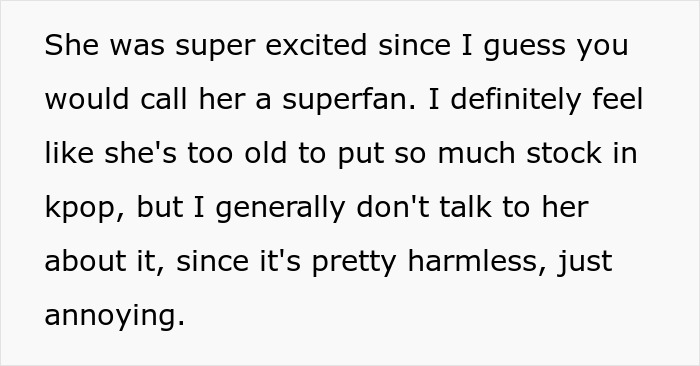
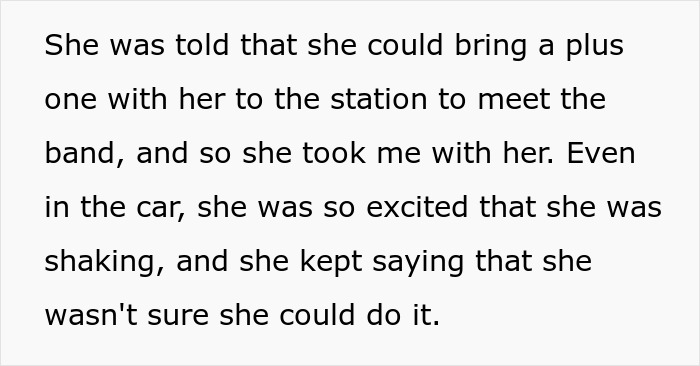
Image credits: Used_Experience

Image credits: NCT DREAM / YouTube (not the actual photo)
At the fan meet, she became emotional, cried, and bowed to the idols, while he felt embarrassed and detached
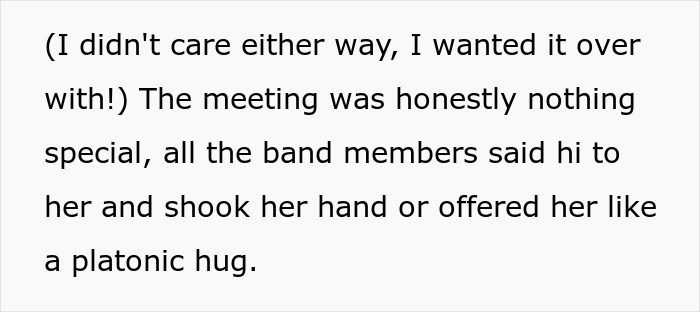

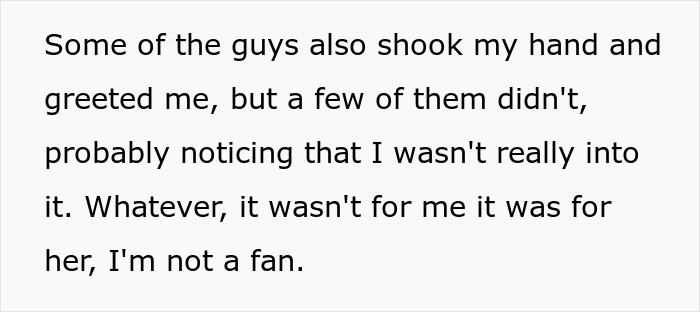
Image credits: Used_Experience
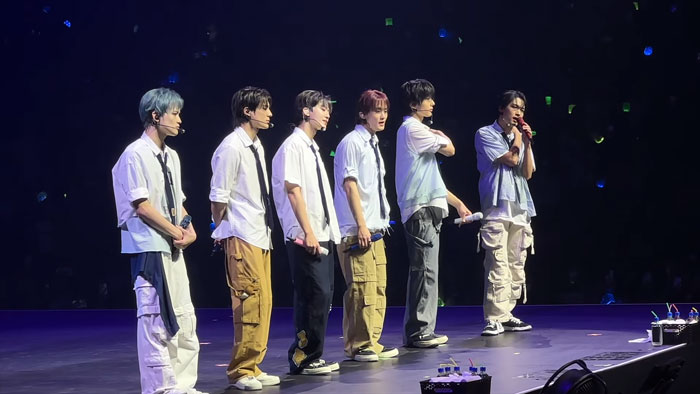
Image credits: Yeimy Cifuentes / YouTube (not the actual photo)
Later, he joked about her behavior in front of her friends, causing tension and leaving her hurt and distant
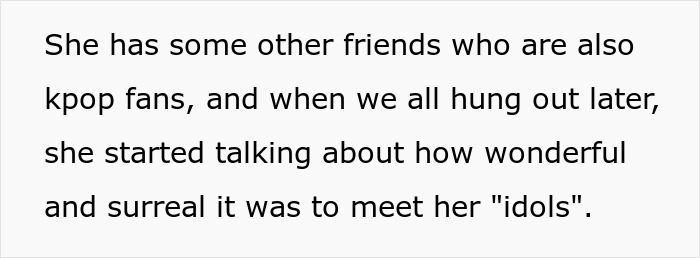
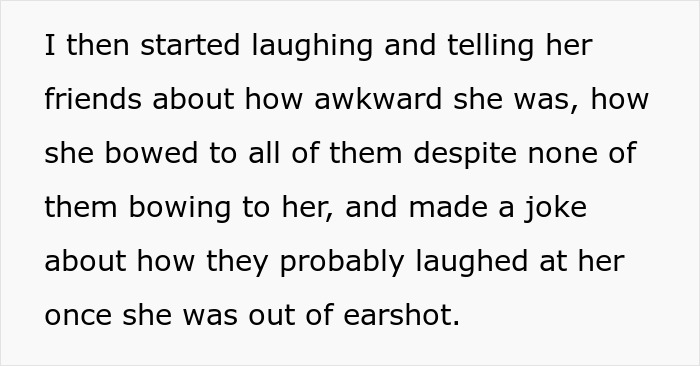

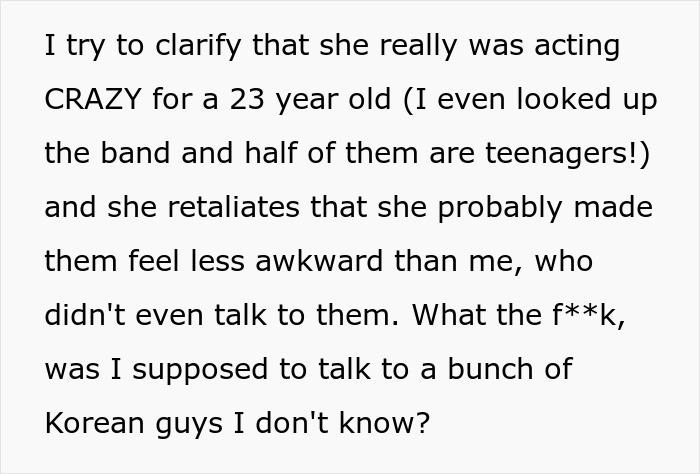
Image credits: Used_Experience

Image credits: cottonbro studio / Pexels (not the actual photo)
A year later, she bought concert tickets for herself and a friend but excluded him, citing past embarrassment and his lack of support


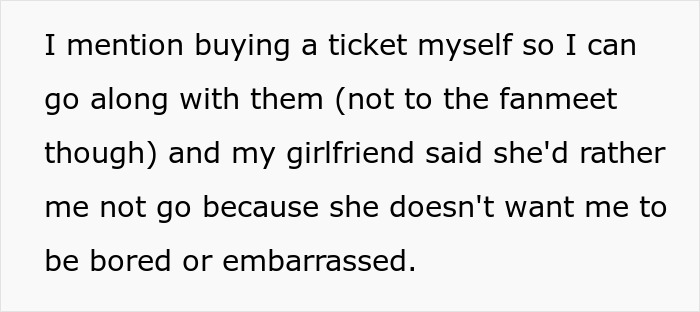

Image credits: Used_Experience
This left him wondering why she would make such a “passive-aggressive” decision over a “joke” that he made a year ago
The OP shared that his girlfriend was over the moon when she won a chance to meet NCT, one of K-pop’s most popular boy groups. He tagged along as her plus one, only to realize he was walking into a world he didn’t understand. She was shaking, crying, and bowing respectfully to the members, and while she was in awe, he was mortified.
To him, it was childish, and he stayed silent during the meet-and-greet, barely acknowledging the NCT members. He left thinking the whole thing was nothing special, and later when he was hanging out with the girlfriend and her friends who were also fans, he couldn’t resist joking about her awkward behavior.
He laughed about her bowing and crying, saying the band probably made fun of her afterward. Instantly, there was silence and death stares because the girlfriend’s friends were not amused. She called him out, saying at least she interacted with the group, while he stood there like a statue. After that day, the OP noticed that his girlfriend rarely listened to K-pop around him again.
One year later, she bought concert tickets to see the K-pop group again that included another fan meet, but this time, she didn’t want him there. When he offered to tag along, she flatly said she’d rather he didn’t come, not wanting him to be “bored or embarrassed”. This then left him wondering if the girlfriend was being passive-aggressive or holding a grudge.

Image credits: simonapilolla / Freepik (not the actual photo)
The OP’s story highlights a common aspect of fandom culture which is deep emotional investment in idols. According to Meer, K-pop’s global popularity leaves room for fans to participate in concerts, fan meetings, signings, and even conventions. Many describe their connection to K-pop idols as deeply emotional, valuing joy and personal fulfillment over financial cost.
Refinery29 then explains that these fan experiences can trigger intense psychological and physiological reactions. They note that seeing a favorite performer in person releases dopamine and serotonin, hormones linked to happiness, which can cause faster breathing, pupil dilation, lightheadedness, and even tears or fainting.
This helps explain the OP’s girlfriend’s physical reactions, like crying and bowing, which were signs of genuine emotional overwhelm rather than over-the-top or “childish” behavior like the OP insisted it was. In fact, Verywell Mind emphasizes that mocking a partner’s passions can have harmful consequences for relationships.
They explain that while playful teasing may strengthen bonds, ridicule about something meaningful can make a partner feel vulnerable, humiliated, exposed, and over time this erodes trust, lowers self-esteem, leads to loss of respect, increases conflict, and creates emotional distance.
Netizens strongly sided with the girlfriend, agreeing that the OP’s behavior was hurtful and dismissive. They pointed out that what he called a “joke” was really an act of humiliation. Others emphasized that mocking something your partner loves is a major red flag, and that he should have simply let her enjoy her passion instead of tearing her down.
What do you think about this situation? Would you go to a concert with your partner even if you didn’t like the band? We would love to know your thoughts!
Netizens insisted the author was in the wrong for laughing at his girlfriend in the first place, and that she had every right to exclude him from this concert

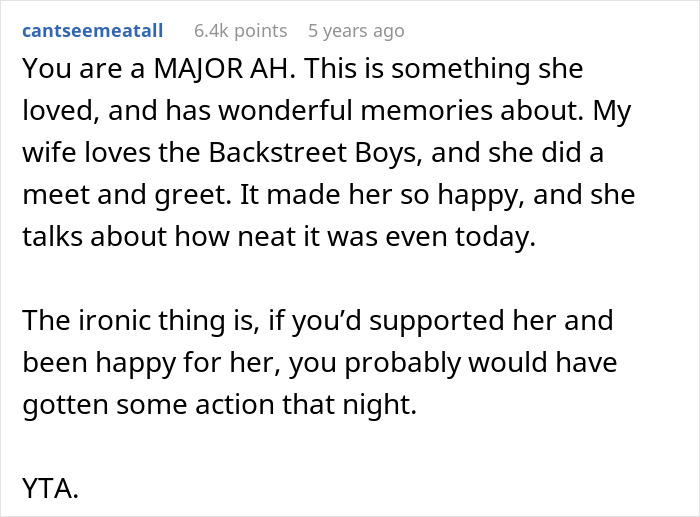


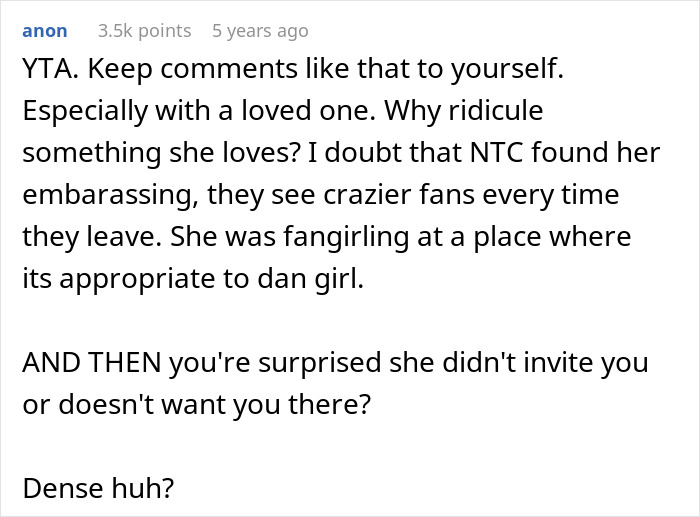

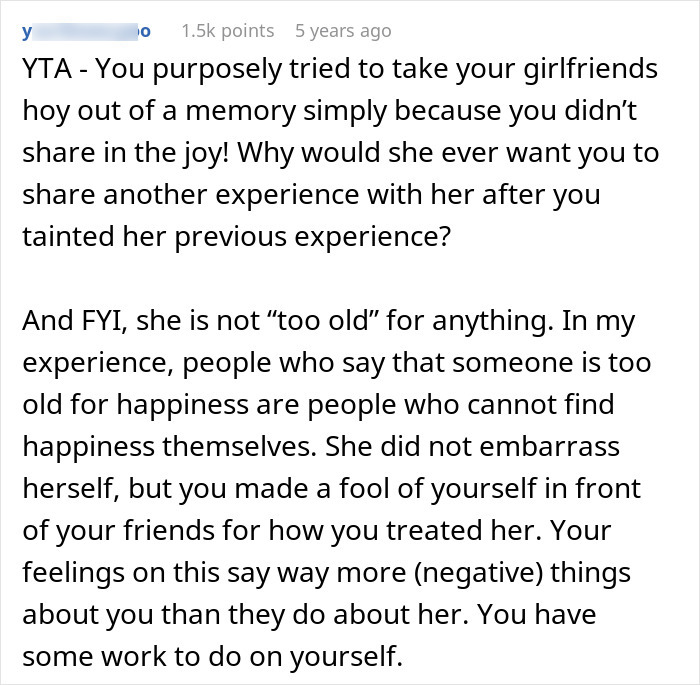
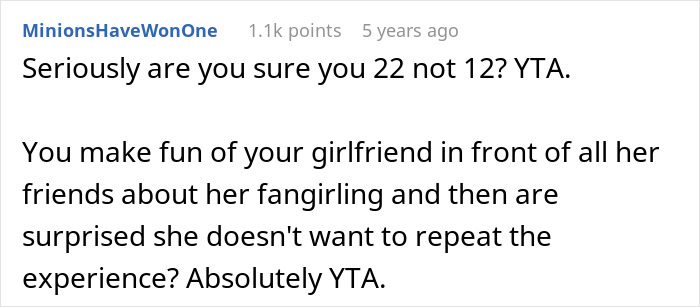
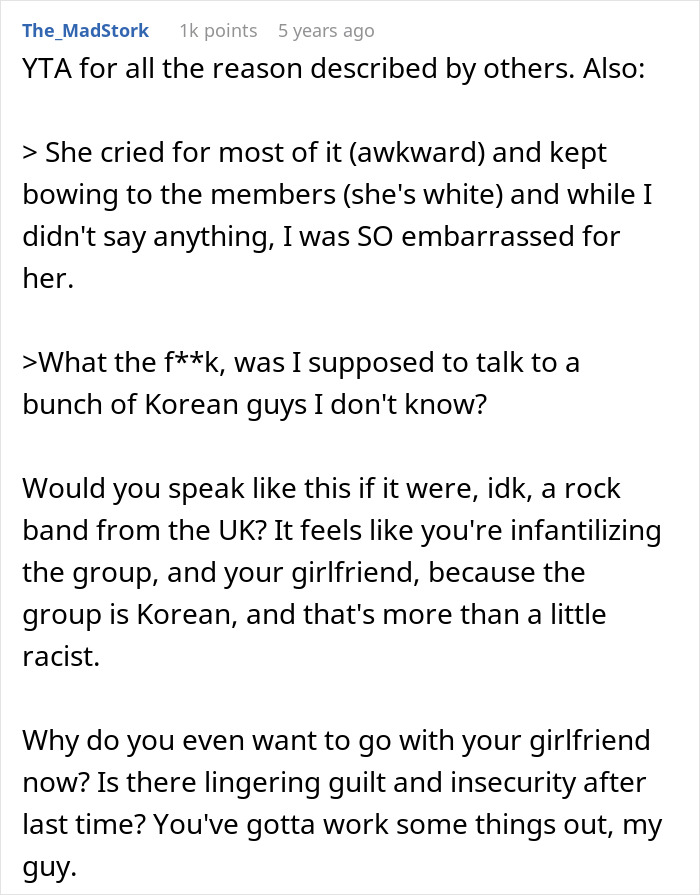
 Follow Us
Follow Us
